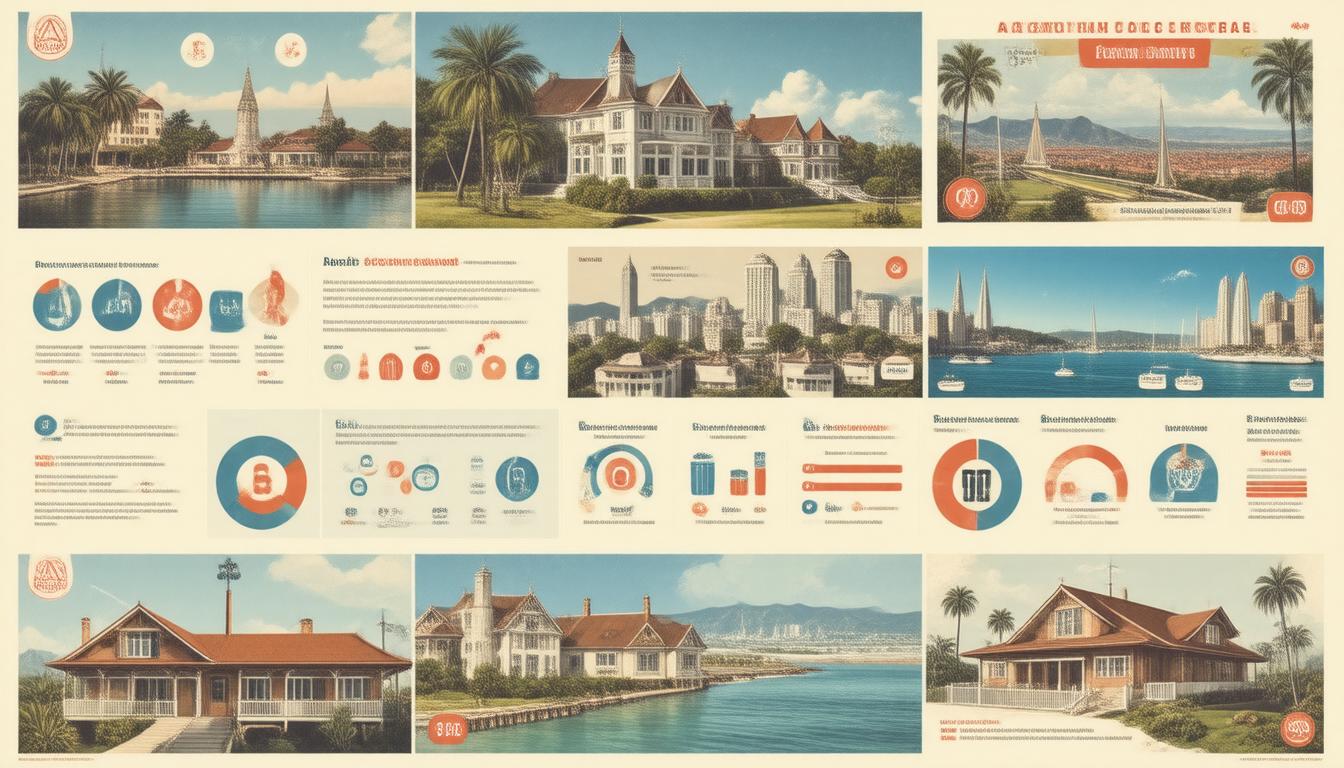Unlocking Success: A Comprehensive Airbnb Competitor Analysis Guide for Property Owners
In the ever-evolving landscape of short-term rentals, property owners must continually adapt to thrive in a competitive environment.
With platforms like Airbnb leading the charge, understanding the dynamics of the market is crucial.
This is where an effective Airbnb competitor analysis comes into play.
In this guide, we will delve deep into the Airbnb market landscape, identify key competitors, analyze their strategies, explore unique features, and equip you with the tools needed to elevate your own rental strategy.
By the end of this article, you'll be able to navigate the complexities of the short-term rental market with confidence and gain a competitive edge.
Key Takeaways
- Understanding the broader short-term rental market is crucial for property owners.
- Identifying key competitors helps in benchmarking performance and gaining competitive insights.
- Analyzing competitor pricing strategies can inform your own pricing decisions and improve profitability.
- Evaluating property features and unique selling points gives your listing a competitive edge.
- Utilizing effective tools for competitor analysis allows for data-driven strategy improvements.
Understanding the Airbnb Market Landscape
The Airbnb market landscape is ever-evolving, and conducting a thorough Airbnb competitor analysis is essential for any host or property manager aiming to thrive in this competitive environment.
Understanding your competitors not only reveals pricing strategies and occupancy rates but also highlights unique offerings that differentiate successful listings.
Moreover, an effective Airbnb competitor analysis involves evaluating customer reviews, amenities, and property types, allowing hosts to refine their listings to better meet guest expectations and market demands.
By keeping a close eye on competitors, you can identify gaps in the market and adapt your strategies accordingly, ultimately increasing your occupancy rates and revenue in the dynamic world of vacation rentals.
Identifying Key Competitors in the Short-Term Rental Space
When conducting an Airbnb competitor analysis, it's essential to identify the key players in the short-term rental space that may influence your business strategy.
Start by evaluating direct competitors such as VRBO, HomeAway, and Booking.com, as they offer similar accommodation options targeting the same demographic of travelers seeking short-term rentals.
Beyond these giants, consider niche platforms that cater to specific audiences, like Vacasa for vacation homes or FlipKey for unique experiences.
Additionally, local rental services and emerging startups can provide valuable insights into market trends and consumer preferences.
Analyzing their pricing strategies, customer reviews, and marketing techniques will give you a comprehensive understanding of the competitive landscape, enabling you to identify gaps in the market and areas for differentiation.
By leveraging tools like SEMrush or SimilarWeb, you can further enhance your Airbnb competitor analysis, ensuring your strategy is informed by the latest data and trends.
‘In the middle of every difficulty lies opportunity.' – Albert Einstein
Analyzing Competitor Pricing Strategies
Analyzing competitor pricing strategies is a crucial component of any successful Airbnb competitor analysis.
By examining how similar properties and services are priced within your market, you can gain valuable insights into customer expectations and identify effective pricing strategies that enhance your competitive edge.
For instance, consider factors such as location, property type, and seasonal demand that influence pricing decisions.
Additionally, utilizing tools for tracking Airbnb competitors can help you monitor fluctuations in pricing over time, allowing you to adjust your rates strategically.
Understanding not only how much your competitors charge, but also why they price their listings that way, empowers you to position your property more effectively in the marketplace.
Whether you are looking to optimize your current pricing model or formulate a new approach, a comprehensive Airbnb competitor analysis will provide the framework needed for informed decision-making and increased bookings.
Evaluating Property Features and Unique Selling Points
When conducting an effective Airbnb competitor analysis, one crucial aspect to consider is evaluating property features and unique selling points (USPs).
Property owners and managers need to understand what differentiates their listings from others in the market.
Features such as location, amenities, and design style can significantly influence a guest's choice.
For instance, properties with outdoor spaces, hot tubs, or proximity to local attractions may stand out in a saturated market.
Additionally, highlighting unique selling points, such as eco-friendly practices or pet-friendly accommodations, can attract niche markets and boost occupancy rates.
Conducting a thorough comparative analysis of competitors will also help identify trends in pricing and guest preferences, enabling property owners to tail Tailor their offerings accordingly and create a competitive edge in the ever-evolving landscape of short-term rentals.
Utilizing Tools for Effective Competitor Analysis
When it comes to enhancing your business strategy within the hospitality industry, conducting an Airbnb competitor analysis is essential.
This process involves examining the strengths and weaknesses of your rivals in order to better position your own offerings.
Utilizing specialized tools for competitor analysis can streamline this process, allowing you to gather valuable data regarding pricing strategies, occupancy rates, and customer reviews.
Platforms such as Airdna provide comprehensive market intelligence that helps you understand how your competitors are performing and identify emerging market trends.
Moreover, tools like Google Trends and SEMrush can reveal insights into your competitors’ marketing strategies and keywords they are targeting, enabling you to enhance your brand visibility.
By effectively employing these tools, you can capitalize on gaps in the market, tailor your services to meet customer expectations, and ultimately drive more bookings.
Frequently Asked Questions
What is the purpose of performing an Airbnb competitor analysis?
The purpose of performing an Airbnb competitor analysis is to understand the market landscape, identify key competitors, analyze their pricing strategies and property features, and leverage insights to optimize your own Airbnb listings for increased bookings and profitability.
How can I identify my key competitors in the short-term rental space?
You can identify key competitors by researching similar properties in your area on platforms like Airbnb, VRBO, and Booking.com, examining their pricing, reviews, and occupancy rates, as well as utilizing local real estate data to find comparable listings.
What factors should I consider when analyzing competitor pricing strategies?
When analyzing competitor pricing strategies, consider factors such as seasonal pricing trends, nightly rates, length of stay discounts, cleaning fees, and promotional offers.
It is also important to compare occupancy rates and average reviews to gauge overall performance.
What tools are available for effective competitor analysis in the Airbnb market?
Useful tools for competitor analysis include dynamic pricing software like Beyond Pricing and PriceLabs, market data platforms like AirDNA and Mashvisor, and review analysis tools that help you assess customer feedback and service offerings of your competitors.
How can I implement insights from competitor analysis to enhance my Airbnb strategy?
You can implement insights by adjusting your pricing, improving property features, refining your marketing strategies, enhancing guest experiences, and differentiating your listings based on unique selling points that attract potential guests.









